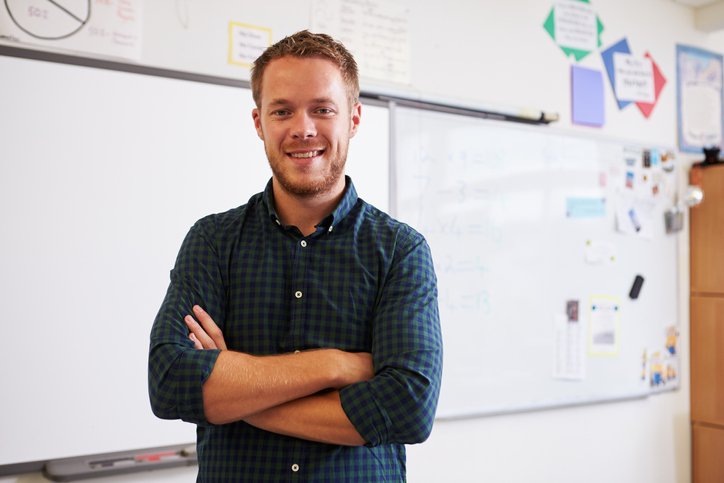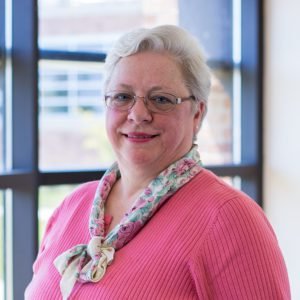 Should you consider a future in alternative education?
Should you consider a future in alternative education? The alternative education licensure program provides licensed teachers the opportunity to learn about meeting the needs of all students, especially those at-risk for difficulties in school.
Impact your community through alternative education
Concordia’s alternative education licensure program prepares licensed teachers to learn about students who face a variety of challenges. In this program, you’ll learn about students who face different challenges. Some of these students have learning difficulties, some struggle with school refusal, and there are some who have fallen through the cracks. Additionally, you’ll learn about students who are involved with the justice system, students who drop out of school, have significant behavior difficulties, have lost their way, need credit recovery to graduate, among other needs.
Sometimes, these students need an alternative approach to school. This is because the traditional classroom and school model has not worked for them. Teaching approaches and practices for students at-risk can benefit many students. Ultimately, preventing at-risk behaviors is the goal.

What is the alternative education program like?
The alternative education license requires only two courses and a portfolio to apply for DPI licensure. It’s one of the only add-on teacher licenses that does not require a practicum or student teaching. Currently, the two courses are accelerated, fully online asynchronous collaborative courses. This means you can complete your work when it’s convenient for you, while meeting course requirements and deadlines. These courses are 8 weeks in length. You’ll go through the courses with classmates and a professor. You can expect individual and small group assignments. Online discussions are an important part of the course as well. Finally, you’ll create a portfolio that demonstrates your competence in the DPI alternative education standards.
Who would be a good candidate to pursue this license?
Any teacher with a current teaching license at Tier II (provisional license) or above (lifetime, master educator license) is a good candidate for this license. Since the license covers ages 10-21/grades 5-12, teachers at the upper elementary through high school and post-secondary grade levels are especially good candidates.
- Teachers already teaching in alternative education settings are excellent candidates for the license.
- Any teachers interested in meeting the needs of students whether at-risk or not, and interested in preventing at-risk behaviors would also be good candidates.
- Special education teachers are also good candidates since many students with at-risk characteristics and behaviors have disabilities.
- School administrators such as principals, department chairpersons, supervisors, district administrators and superintendents would also benefit from the alternative education license, so they are more knowledgeable of this option for students in their district.
- In addition, people working in social services, non-profit organizations, alternative settings, and religious groups working with children and youth would benefit from the knowledge gained about students who are at-risk. These people would need to have a bachelor’s degree as a minimum, and would take the courses, but not earn teacher licensure.
Why should teachers consider a career in alternative education?
Alternative education broadens a teacher’s perspective of students with school difficulties, and might help to prevent at-risk behaviors. Sometimes teachers are unaware of actions and approaches they take that may impact a student’s behaviors. The program gives teachers strategies to consider when working with students in alternative education, and those with difficulties in school. It also is rewarding for many teachers to work with students for whom traditional school has not worked. Many teachers in alternative education have the opportunity to help change and impact the rest of a student’s life.
The alternative education license requires only two classes and a portfolio, which is which is uncommon for most licenses. Having an additional teaching license adds to the teacher’s professionalism and professional credentials, can make the teacher more valuable to the school district, and more marketable if the teacher should want a job in a different district, or a promotion in their current district. The fact that the courses are graduate-level courses also shows that the teacher is pursuing lifelong learning by continuing his/her education beyond initial college and licensure.
Furthermore, teachers interested in pursuing cross-categorical special education (CCSE) licensure through our 16-credit program (5 courses and a practicum, also fully online), can add the 6-credit alternative education license, and earn two licenses in a relatively short period of time. All of these credits (alternative education, and CCSE) count toward the Master of Science in Education degree which requires a minimum of 30 credits. The two licenses and/or MS degree makes teachers very valuable to their district and very marketable if they wish to change districts.
What do you like about Concordia’s alternative education licensure program?
The graduate alternative education program and the graduate special education programs, for which I am program director, are both accelerated fully online asynchronous programs. That is what I like the most about CUW’s approach to these graduate programs-they are fully online and asynchronous.
You can work on classes to meet course deadlines and requirements on your schedule, whether it’s day or night. This is more desirable than going to campus and sitting in a classroom at a set time. You can read course materials, participate in online discussions, or do other coursework when you’re waiting for your child’s soccer practice to end. Or, work on course material after the children go to bed, before work, at a coffee shop over the weekend, or when you’re at home. The courses are accessible on mobile and other devices which make it convenient for working adults. In this program, you’ll go through courses with classmates and a professor, so there are others with whom to learn and share, and answer any questions that may arise.
Do you want more information?
Alternative education is an incredible way to live out your vocation as a teacher. If you think it could be right for you or have further questions, visit us here.
Wanda Routier is the Program Director for Concordia University Wisconsin’s Special Education Program and Alternative Education Licensure Program. She can be reached at wanda.routier@cuw.edu.
—
If this story has inspired you, why not explore how you can help further Concordia's mission through giving.